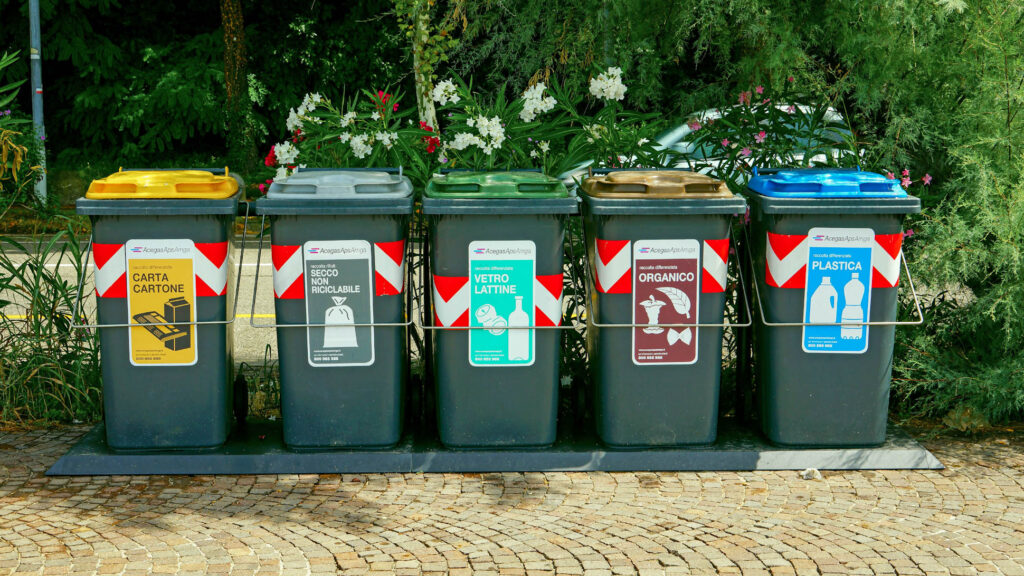
When you own a home in Italy, waste collection and recycling are among the first practical things you’ll notice. Unlike some countries with uniform national rules, Italian waste management is organised at the municipal level, meaning practices and schedules can vary even between neighbouring towns.
As part of our Foreign Buyer Practicalities hub, this guide explains how the system works, what you’re expected to do as a property owner, and which taxes apply.
Table of Contents
- How Waste Collection Works
- Recycling Rules and Tips
- Local Waste Tax (TARI)
- Why This Matters for Homeowners
- See Also:
How Waste Collection Works
Most municipalities use a door-to-door system (raccolta porta a porta). Homeowners are given color-coded bins or bags for different categories:
- Organico → food scraps and organic waste.
- Plastica e metalli → plastic packaging and metals.
- Carta e cartone → paper and cardboard.
- Vetro → glass.
- Indifferenziato → non-recyclable waste.
Each category is collected on a specific day of the week. You’ll receive a calendar (calendario rifiuti) when you register your household.
Failing to separate correctly can lead to fines, and in some towns, inspectors even check bags for compliance.
Recycling Rules and Tips
While rules vary slightly, here are some general guidelines:
- Plastic: Only bottles, packaging, and containers — not toys, cutlery, or plastic bags.
- Paper: Clean and dry — pizza boxes with grease stains go in indifferenziato.
- Glass: Bottles and jars without caps; ceramics and lightbulbs are not allowed.
- Organic: Use compostable bags (biodegradable, often green).
Public bins for glass and clothing collection are often available around town.
Local Waste Tax (TARI)
Alongside waste collection, property owners pay the TARI (Tassa sui Rifiuti). This is a local tax based on the size of your home (square meters) and sometimes the number of occupants.
TARI is billed by the Comune, usually once or twice a year. If you’re a foreign homeowner who does not reside full-time, you may qualify for a reduction, but you need to request it at the local office.
👉 Read more about TARI tax.
👉 For a broader look at all property-related taxes, see our article on Understanding Italian Property Taxes.
Why This Matters for Homeowners
Many new homeowners are surprised by how strict Italy is about recycling. Proper waste sorting is not only a civic duty but also a legal obligation. Learning the rules early makes your daily life smoother and avoids unexpected fines.
